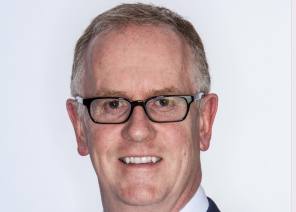
The prospect of the next general election has caused the managers of the Pictet Multi Asset Portfolio to reduce the fund’s exposure to UK commercial property.
Shaniel Ramjee, senior investment manager for multi-asset at Pictet Asset Management, said he and his co-managers Percival Stanion and Andrew Cole had changed their thinking about the UK market but not because of Brexit.
Speaking to FTAdviser, he explained: “In terms of how we have positioned ourselves relative to the UK market and the changes in sterling this year, the firmness in sterling since the snap election has meant we’ve had slightly more sterling in the portfolio.
“But what has changed our thinking about the UK market is we’ve become a bit more worried – not about Brexit. We think a lot of the bad news about Brexit is already in the market.
“However, we think some of the issues surrounding the next general election have not hit investors’ minds yet. For example, we think greater taxation on corporates and indeed on the property sector might be much more difficult for investors to get their heads around.
“And we have, in light of this, reduced quite significantly our property allocation to UK commercial property,” he said.
At the Labour conference this week, the party’s leader Jeremy Corbyn pledged to introduce rent controls on private properties if he were elected into government.
The next UK general election is due to be held in 2022 but there has been speculation about an early election this year or in 2018.
Last year, the portfolio’s returns came mainly from miners and housebuilders but Mr Ramjee said this year the main drivers of portfolio performance had come from more global thematic areas, such as the digital economy.
Asked whether the investment process enabled the managers to use both active and passive strategies in the fund, Mr Ramjee explained: “We think the active/passive decision is part of the asset allocation decision.
“There are some periods of time where the global markets are being buffeted around by big macroeconomic issues and it’s very hard for stockpickers to benefit from those environments. So don’t pay for stockpicking, don’t use your risk budget in stockpicking, just be passive.”
He continued: “In other times, where the markets are much more benign and the environment is much more benign, it all comes down to how individual companies are doing, how their management is able to benefit that company. So then stockpickers are much more likely to outperform.”
He pointed out it was a much more benign situation for stockpickers at the moment and therefore there was “slightly more active management in the portfolio relative to passive”.
Watch the full interview at the top of the page.
eleanor.duncan@ft.com



